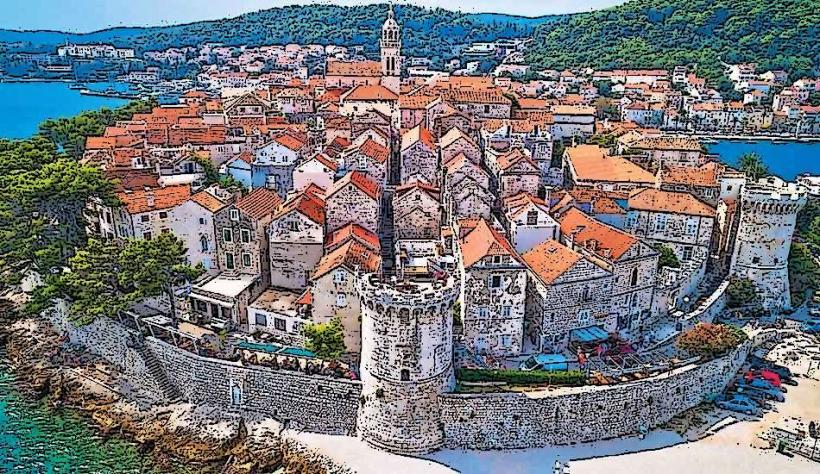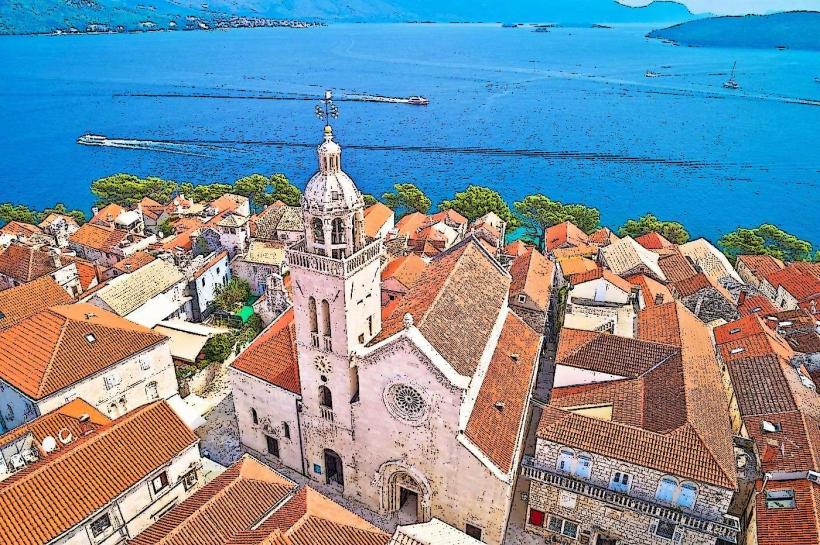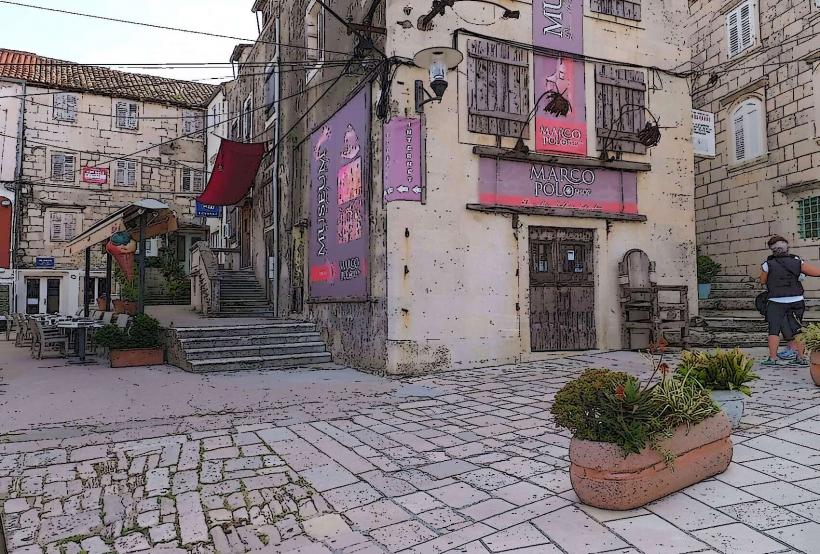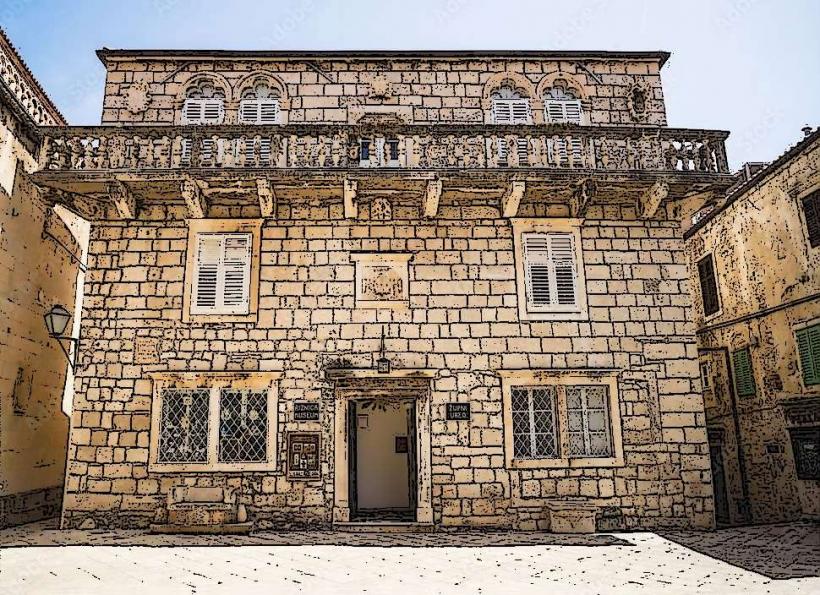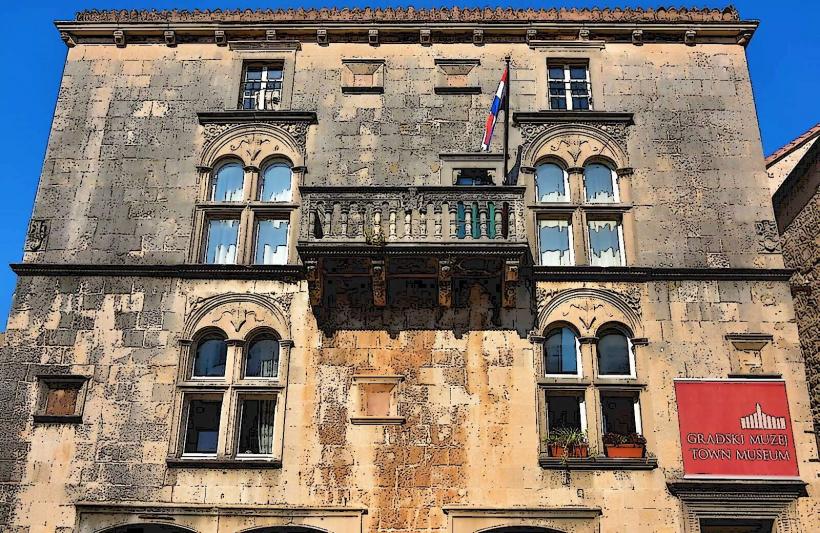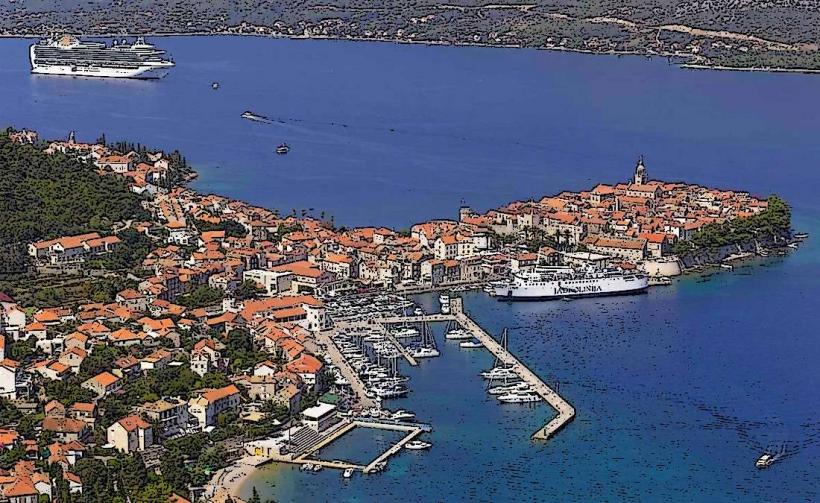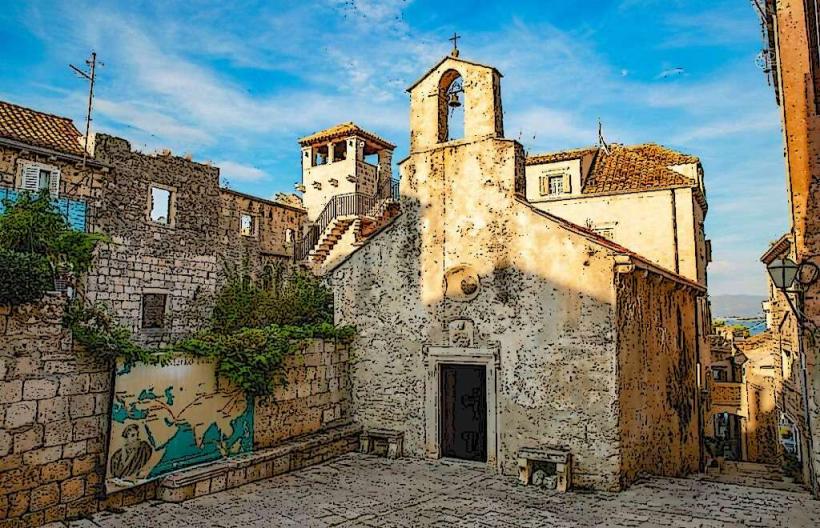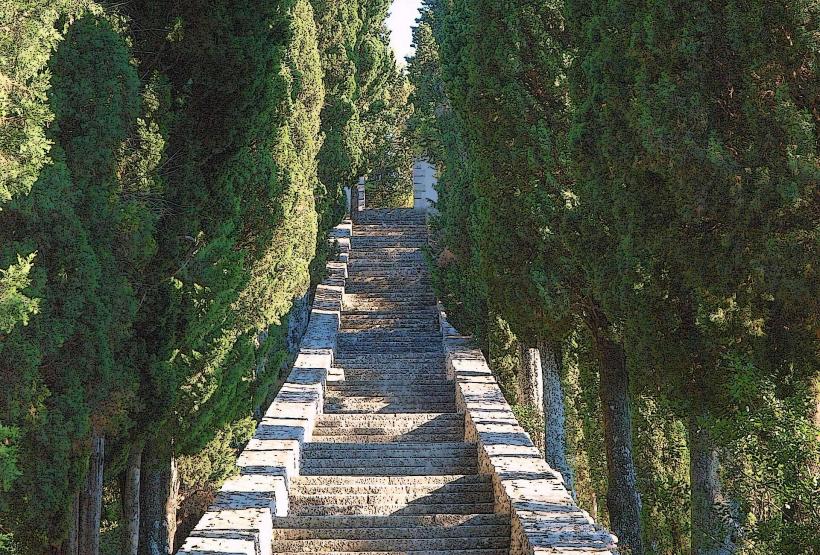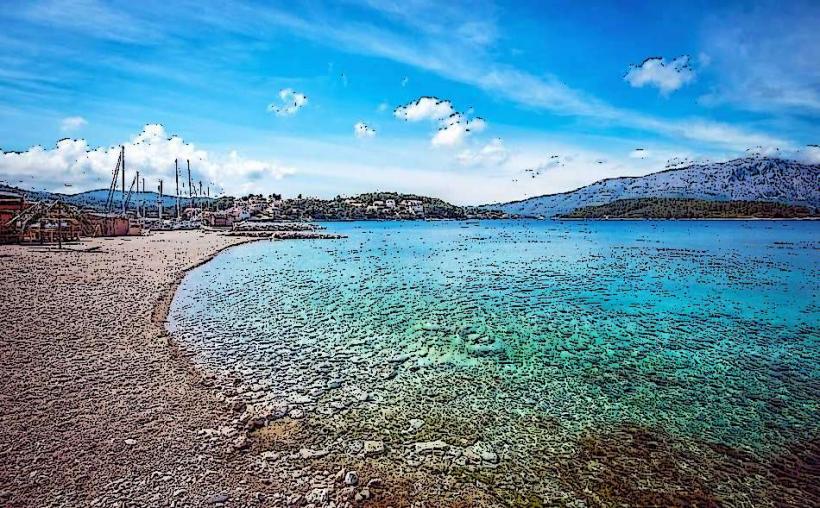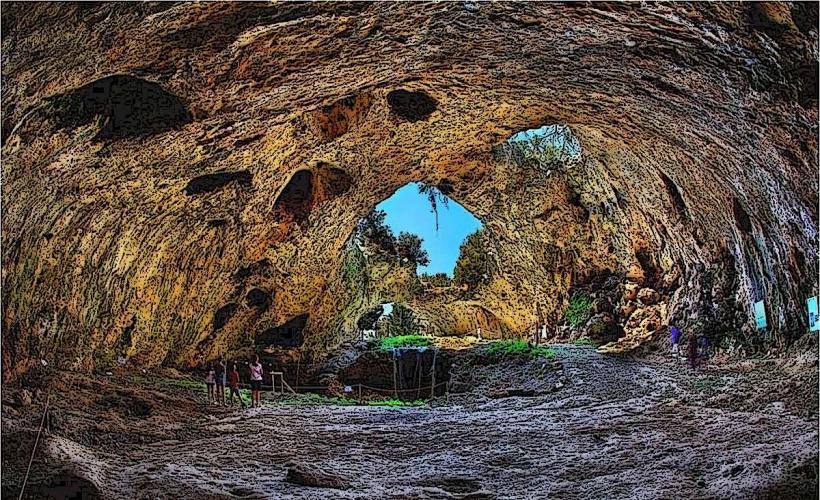Information
City: KorculaCountry: Croatia
Continent: Europe
Korcula, Croatia, Europe
Korčula functions as the primary cultural and administrative center of the island of the same name within the Dubrovnik-Neretva County. Situated on a small oval-shaped peninsula on the northeastern coast, it serves as a specialized node for viticulture (Pošip and Grk wines), shipbuilding, and traditional sword dance preservation. It is defined by its "fishbone" urban layout, its perfectly preserved medieval walls, and its claim as the birthplace of the explorer Marco Polo.
Historical Timeline
Korčula was established as a Greek colony (Korkyra Melaina) in the 6th century BC. The primary era of governance was defined by the Republic of Venice (1298–1797), which utilized the island’s high-quality oak for its naval fleet. The primary event shaping its modern identity was the 1298 naval Battle of Korčula between Venice and Genoa. Historically, the city is governed by the Statute of Korčula (1214), one of the oldest legal documents in the Slavic world, which strictly regulated urban planning and social conduct.
Demographics & Population
The population of the town is approximately 5,400 (2026 estimate). The demographic profile is specialized toward the maritime and agricultural sectors. The workforce is highly skilled in stone masonry and specialized viticulture, maintaining indigenous grape varieties found nowhere else in the world.
Urban Layout & Key Districts
The city is organized into a fortified medieval core and 19th-century coastal expansions.
Old Town: A specialized "fishbone" street grid designed to provide airflow while protecting against the strong "Bura" and "Maestral" winds.
Sveti Nikola: A specialized western promenade featuring a row of palm trees and 19th-century administrative buildings.
Dominče: A specialized eastern district housing the primary ferry terminal and industrial zones.
Lumbarda: A nearby specialized village (6 km away) situated on sandy soil, exclusive home to the Grk grape variety.
Top City Landmarks
St. Mark’s Cathedral: A specialized 15th-century Gothic-Renaissance structure built from local limestone, featuring works by Tintoretto and a facade carved by local masters.
Marco Polo’s House: A specialized site believed to be the birthplace of the merchant-explorer; it includes a tower offering views of the Pelješac Channel.
Revelin Tower: The specialized Land Gate and main entrance to the Old Town, featuring a staircase and the Venetian winged lion.
The Bishop’s Treasury: A specialized museum in the Abbey Palace containing 12th-century icons, liturgical silver, and drawings by Leonardo da Vinci.
City Walls: A specialized system of circular and square towers (Kanavelić, Zakerjan) that completely encircle the historic core.
Moreška Sword Dance: A specialized 17th-century mock-battle dance performed with swords, representing the struggle between the "White" and "Black" kings.
Transportation Network
Korčula is a primary maritime node in the southern Adriatic.
Ferry Hub: A specialized terminal connecting the island to Orebić (Pelješac), Split, Hvar, and Dubrovnik via high-speed catamarans and car ferries.
Pelješac Bridge: Since 2022, this bridge has significantly shortened the transit time to Korčula by providing a continuous road link to the mainland, bypassing the Bosnian border.
Public Transit: A specialized network of buses and small passenger boats ("vaporettos") connecting the town to Vela Luka and nearby islets.
Safety & "Red Zones"
The general safety level is very high. Korčula is statistically secure with virtually no violent crime. There are no "red zones." The Old Town is pedestrian-only and safe at all hours.
Digital & Financial Infrastructure
The city is a leader in Sustainable Island Logistics. Internet speeds average 400–1000 Mbps. 5G is universal in the town center. In 2026, the city utilize the "Korčula Smart Island" initiative to manage water resources and solar energy distribution.
Climate & Air Quality
Korčula has a Mediterranean climate with mild winters and hot summers. Average temperatures range from 9°C in January to 29°C in July. Air quality is exceptionally high due to the island's 60% forest coverage and lack of mainland industrial pollution.
Culture & Social Norms
Social norms are characterized by the "bratovština" (fraternity) tradition and a deep pride in local winemaking. Tipping (10%) is standard. The primary cultural event is the Moreška Performance (weekly in summer) and the Korkyra Baroque Festival.
Local Cost Index (2026 Estimates)
1 Espresso: €2.20 – €3.50
1 Glass of Pošip Wine: €5.00 – €8.00
1 Standard Lunch: €18.00 – €35.00
Ferry (Orebić-Korčula): €3.50
Nearby Day Trips
Badija Islet: 15 mins by taxi boat; a specialized island featuring a 14th-century Franciscan monastery and tame fallow deer.
Pelješac Peninsula: 15 mins by ferry; a specialized wine region famous for its Dingač red wines and the Walls of Ston.
Vela Luka: 45 mins away; home to the specialized Vela Spila prehistoric cave site.
Facts & Legends
Korčula is the site where the first legal abolition of slavery in Europe occurred (Statute of 1214). Legend states that the city was founded by the Trojan hero Antenor in the 12th century BC. A verified fact is that the streets of the Old Town are curved slightly to the west but straight to the east to prevent the cold "Bura" wind from blowing directly through the city. Historically, Korčula was known as "Emerald Isle" due to its dense Mediterranean pine forests.

